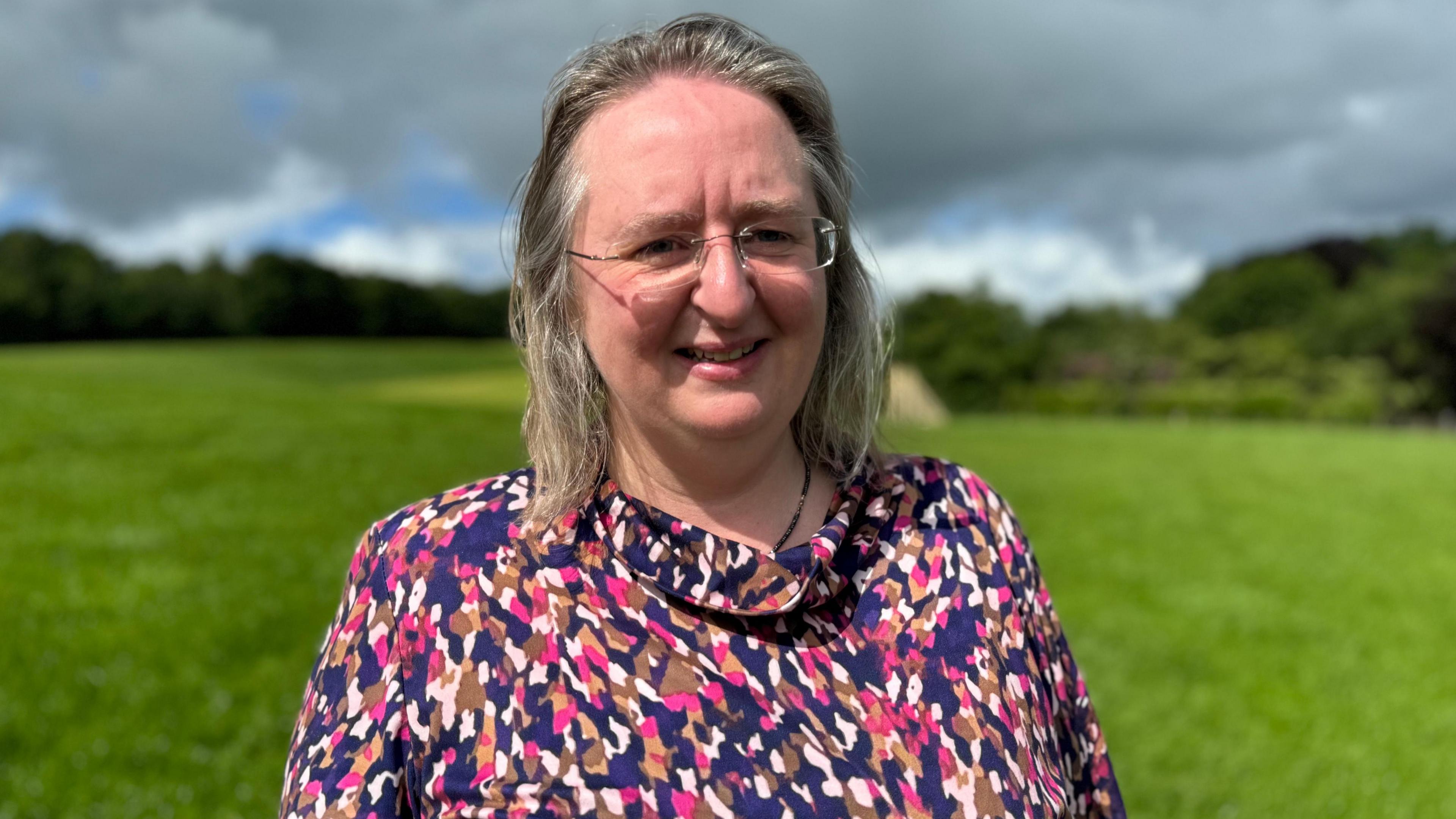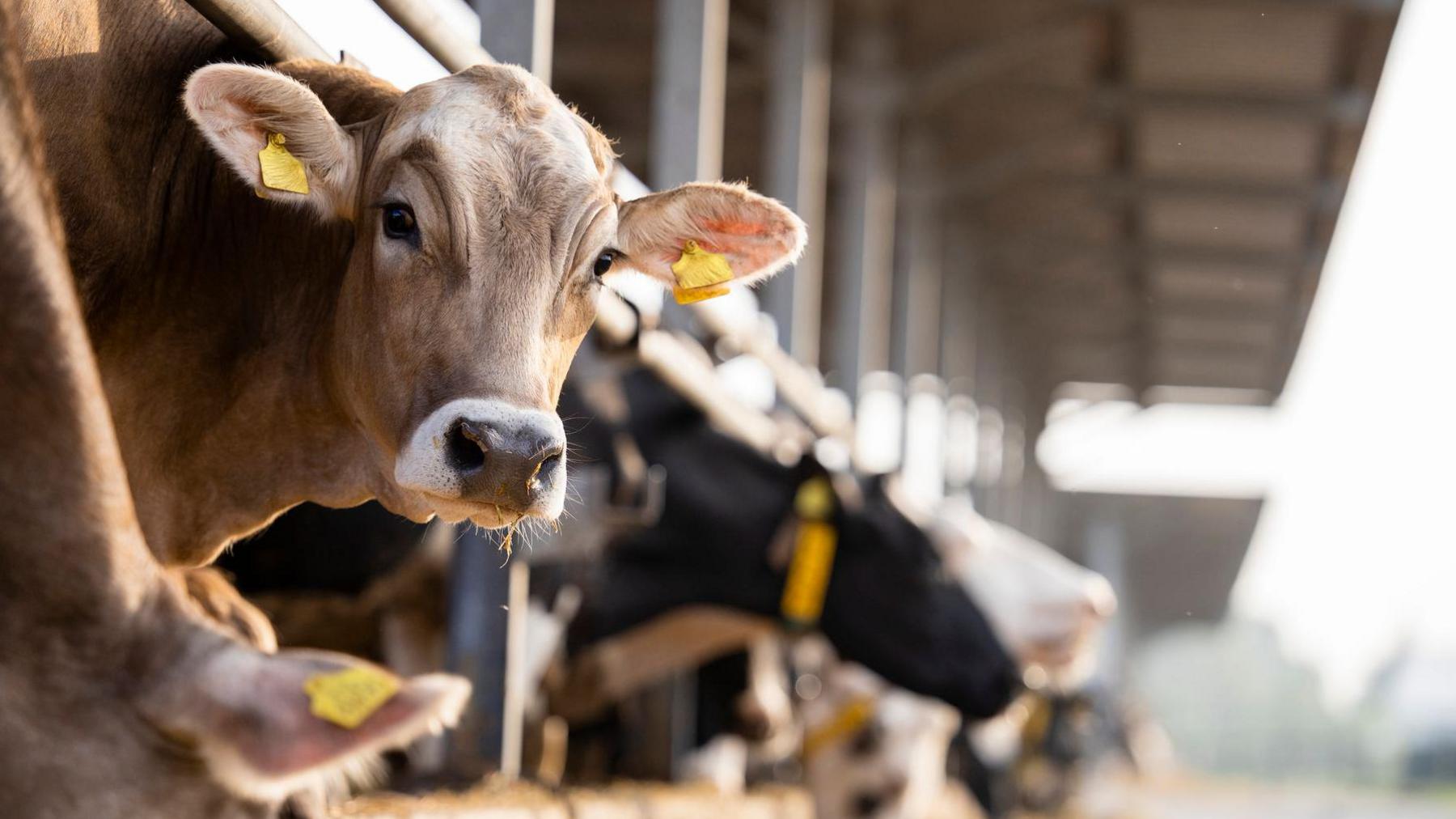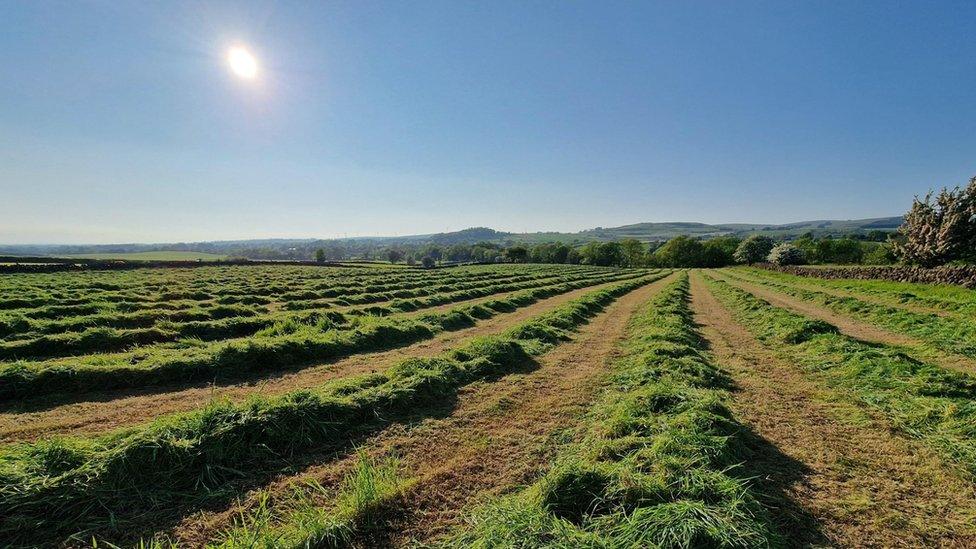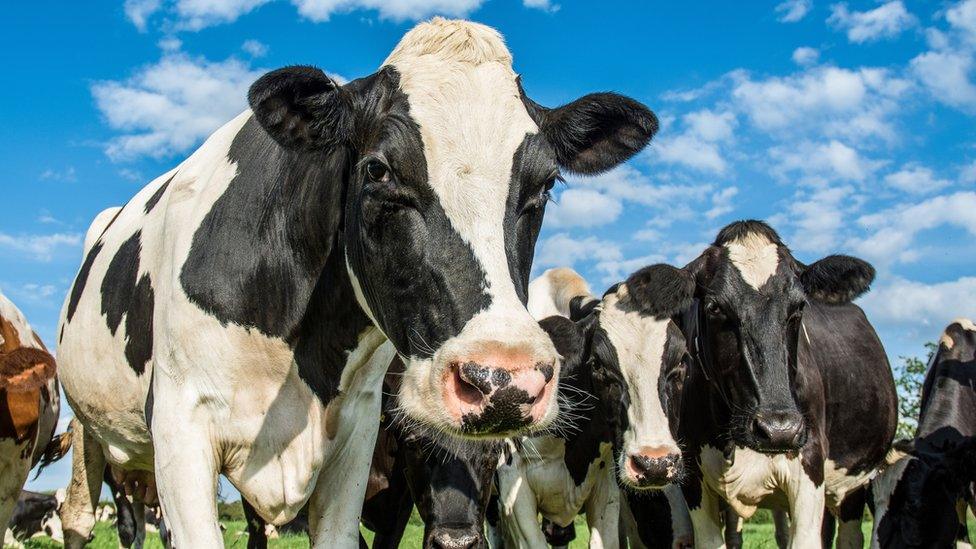'Farmers aren’t trying to destroy the environment'
'They don't understand what farmers are doing'
- Published
John Egerton has farmed his land near Rosslea in County Fermanagh for four decades.
But, now, the way he farms is changing.
He and his sons have been measuring carbon on the farm for more than two years to get a baseline figure for reducing emissions.
And he is adopting new approaches to how he manages his fields, with his carbon footprint in mind.
"We've been stitching in both red and white clover to try and reduce the amount of artificial nitrogen that we're using.
"We've also been planting multispecies or herbal layers and these help with the reduction of use of artificial nitrogen.
"We're trying to use mitigating policies to try and lower our carbon footprint."
Agriculture is the highest-emitting sector in Northern Ireland, contributing 29.1% of greenhouse gas emissions which contribute to climate change.

Professor Elizabeth Magowan
As a farmer who has worked with scientists from the Agri-Food and Biosciences Institute (AFBI), Mr Egerton will be one of hundreds attending open days at the facility in Hillsborough.
Government scientists there will demonstrate the cutting-edge research and latest developments to help farming transition to lower emissions.
As the director of Sustainable Agri-Food Sciences, Prof Elizabeth Magowan has been "blown away" by the science that will be on display.
And she added farmers are "hungry" for it.
"When farmers are armed with the information and an understanding of what their metrics are, they will make changes," she said.
"And they have made very positive changes which actually have improved their productivity but more importantly, have improved air quality, water quality, improved their carbon footprint.
"I think farmers are really up for it because they know that to improve these things is their responsibility as the custodians of our land, but also for their future generations, because they know that these things need to be worked through to actually continue to produce food for our population as well."

Prof Elizabeth Magowan says farmers are hungry for using new emissions developments
Environmental sustainability
After World War Two, farming intensified to meet the needs of a population where food was rationed.
But with a new challenge of tackling climate change, the focus has shifted.
John Egerton is implementing some of the innovations the AFBI scientists have worked on.
He thinks some farmers "become very defensive" when told they are doing the wrong thing.
"Farmers aren’t trying to destroy the environment in any way," he said.
"We are the custodians of the environment and we intend to look after it, if we're given the chance.
"Ultimately, it's sustainable business, both financially and environmentally - if we're not sustainable financially, then there's no hope of us being sustainable environmentally."
Related topics
- Published2 January 2024

- Published9 March 2022
